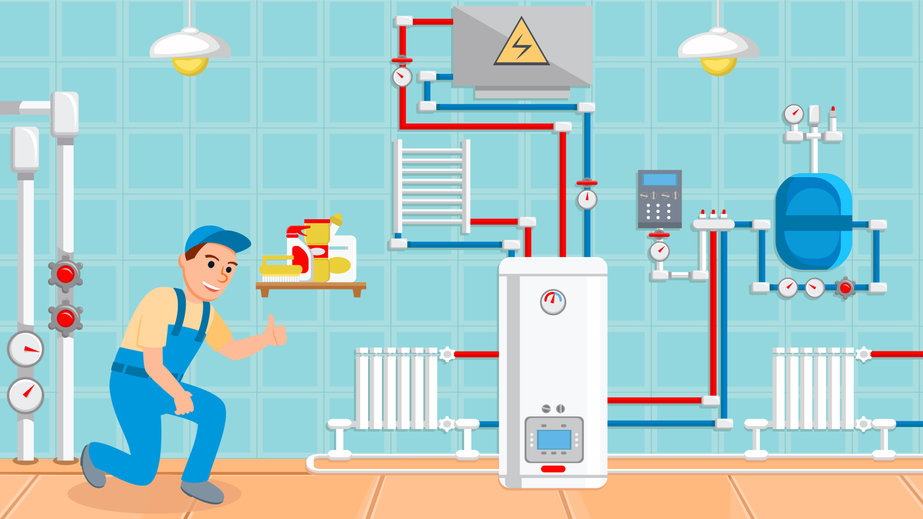There are many types of heating systems available in the market currently. However, due to increased sentimentality and attachment to old and current heating systems, many people do not feel the need to explore the other options available in case a replacement might be necessary. There is a lot of focus on maintenance, which hinders people from coming alive to the fact that there is still a plethora of fitting alternatives out there if push to shove and the need to have a replacement becomes exceedingly imminent.
These systems hail from varying manufacturers and they entail different models that match the diverse preferences and inclinations of the clients across all demographics and are premised on the financial standing of one person to another.

This article shall purpose to provide a clear outline of the various types of heating systems so that you may have a proper guide and idea in case you are desirous of acquiring one.
Furnace
This is also commonly referred to as the forced air distribution system. Primarily, this system entails a furnace, which is powered by gas and aids to propel and push the air through a network of ducts and this works to deliver hot and perfectly conditioned air to the different areas or rooms in the house. It is preferable due to its semblance to air conditioners specifically in terms of function as both employ the blower and the ductwork and this implies that this forced air distribution system can also be comfortably used as an alternative to air conditioners in the hot summer months. This system has several benefits in that it can act as a heating and cooling system at the same time. However, it is very risky with a high propensity explosion and fire hence ample caution ought to be exercised to curtail or mitigate such levels of risk.
Heat Pump
A heating pump is a type of heating system that is extremely different from the furnace as it operates by employing electricity and a cooler or refrigerator to transfer the heat in stark contrast to the furnace that functions by producing its own heat. It is ideal as it can also be comfortably used in the winter season to heat the home and in the summer months to heat the home. It has also been hailed for its efficiency, which in turn makes it economically viable. However, questions still linger about its potential and capability to generate sufficient heat in areas where the temperatures are excessively low as they fall below freezing. They are therefore somewhat limited to moderate climates devoid of the extremes that could strain them severely.
Boiler
A boiler is another type of heating system that has been in use since medieval times. It uses a piping system, which carries the hot water or steam and this conveys the heat to different areas in the house. Many people opt for this system due to what is usually known as zoning. Definitively, this means that the heating and cooling can be done in accordance with one’s bespoke desires including some areas that might be prioritized more than others. Bearing in mind that this method has been in practice for many years, there have been numerous attempts to modernize it but this has come at a cost, as it is quite pricey with regard to installation and day-to-day operational costs. It cannot be deemed a preserve of the rich and affluent but you must fork out some colossal sums of money if you choose this system and be ready to expend more to run it accordingly.
Solar Heating
This modern system has been gaining traction in recent years. It is famed for its cost-effectiveness as it uses solar energy to effectively heat water or any other type of ideal fluid after which the heat is transferred to the inner parts of the home and some stored to be used later. However, this system is fundamentally flawed in that it relies on other types of heating systems for it to function optimally. This means that the active solar heating system can distribute heat through the central forced-air system or the radiant floor and this dependence on traditional heating systems makes it unworthy to many due to this shortfall. However, it has still gained numerous praise due to its eco-friendliness and this remains to be one of its unbeatable benefits.
This article has clearly outlined and discussed the different types of heating systems available including their advantages and shortcomings. In case you want to acquire or have one installed in your home, you should now be better informed. However, do not hesitate to call a professional for better guidance.
